|
Recent research is included here. Each project has a corresponding GitHub repository  , website , website  , and/or paper , and/or paper  linked below where you can learn more. For past research projects, see my CV. linked below where you can learn more. For past research projects, see my CV.
|
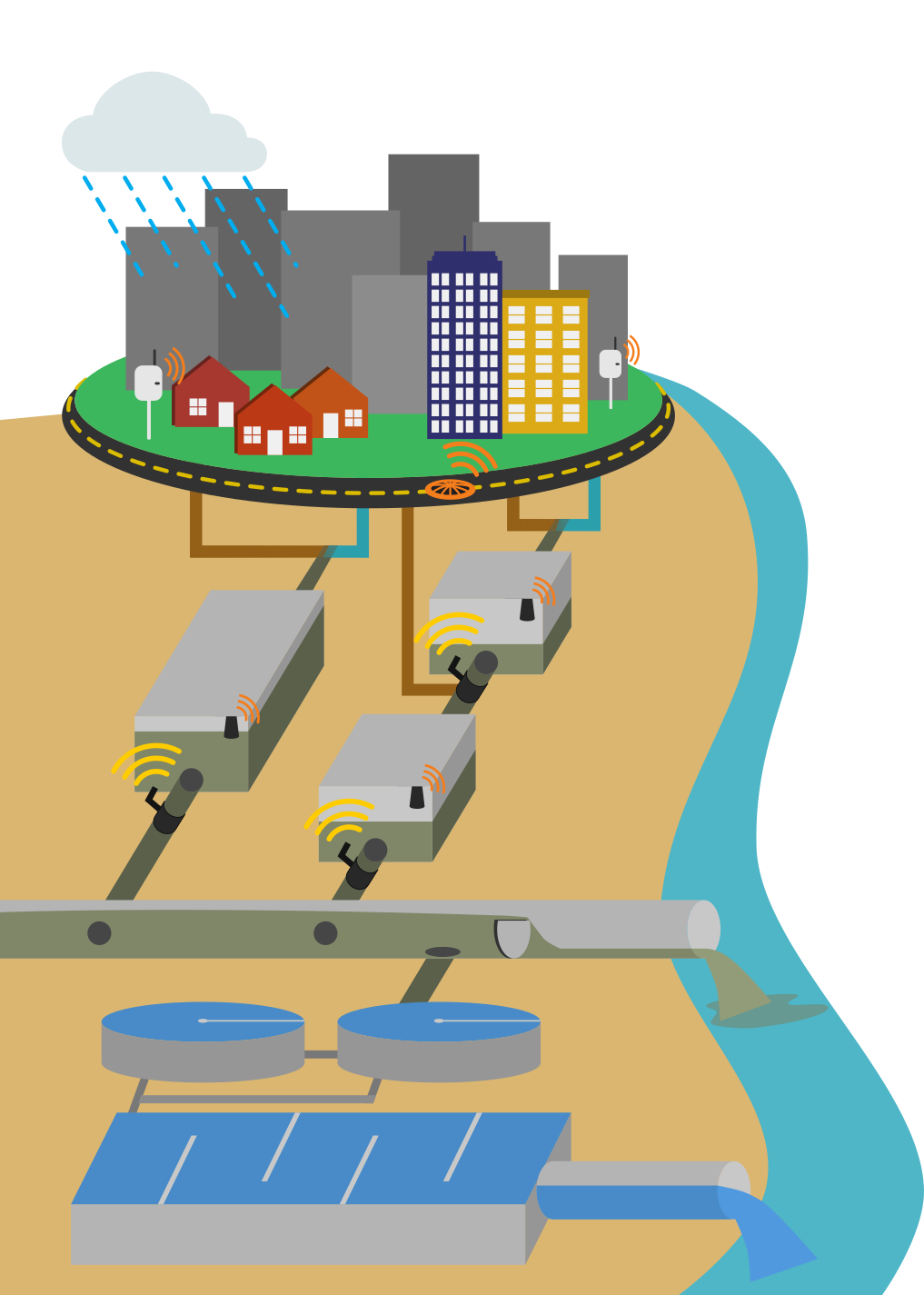 |
Bidirectional impacts between sewer and WRRF system decisions
Collaborators: Branko Kerkez, Nancy G. Love
The coordinated control of sewer assets presents the opportunity to begin viewing the sewer system as an extension of the downstream water resource recovery facility. With this potential, inflow conditions will be shaped to benefit treatment performance and water quality. This work interfaces a wastewater treatment process simulator with Python to simulate and evaluate the impacts of sewer control on downstream treatment processes, as well as elucidate coordination opportunities for preemptive, rather than reactive, system-wide control strategies. More than just enabling more efficient treatment performance, this work aims to show how the interaction of sewer and WRRF dynamics stands to change how operational decisions are made in terms of system resilience and the perception of risk in control actions.

|
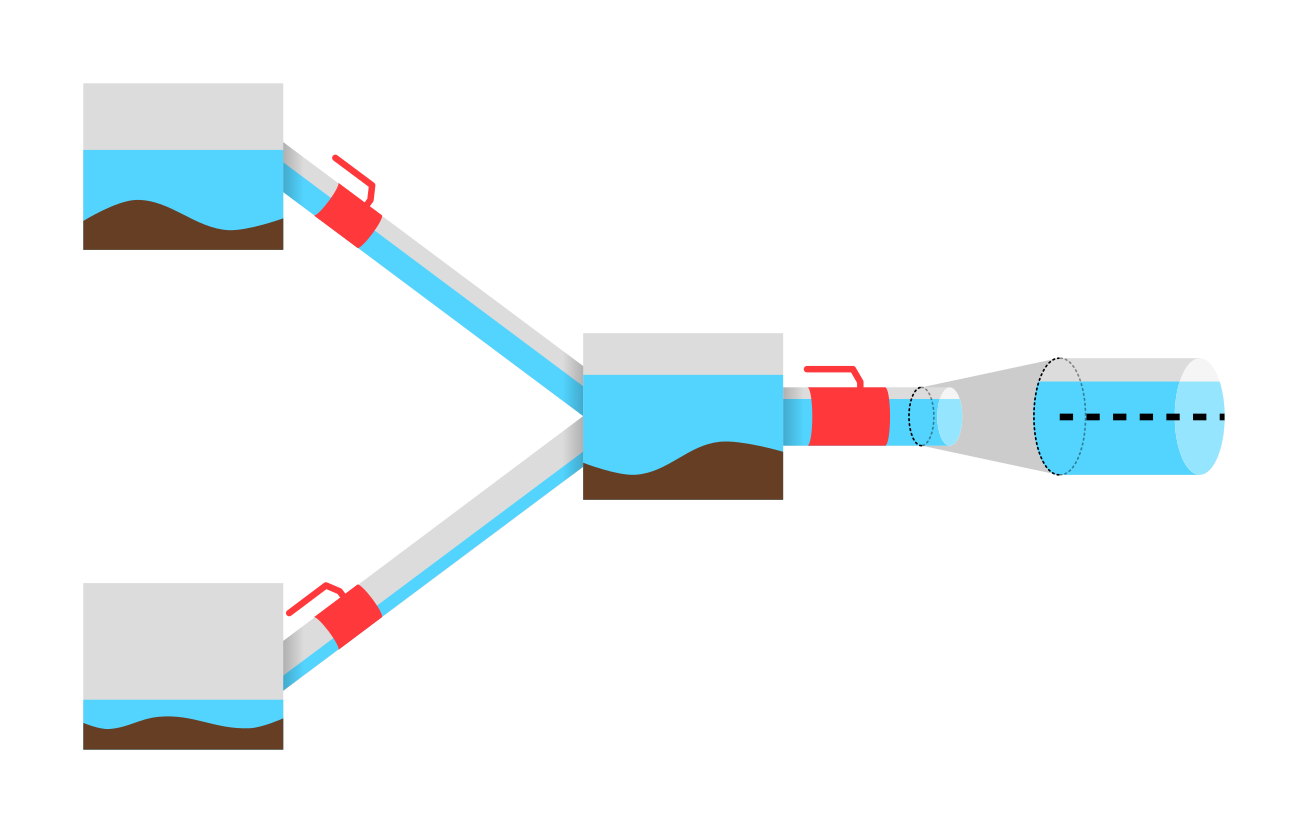 |
Balancing water quality and flows in combined sewer systems using real-time control
Collaborators: Branko Kerkez, Nancy G. Love
• Environmental Science: Water Research & Technology, 2020
We develop a load-balancing control strategy for the real-time control of distributed sewer assets to balance upstream (e.g., flooding) and downstream water quantity and quality objectives. In addition to being straightforward to understand and implement, this formulation provides tunable parameters that enable decision-makers to embed system priority into control strategies. Using this formulation, we present a framework to begin to evaluate how control decisions in stormwater and sewer systems should be made with conscious effort of water quantity and quality trade-offs.
 
|
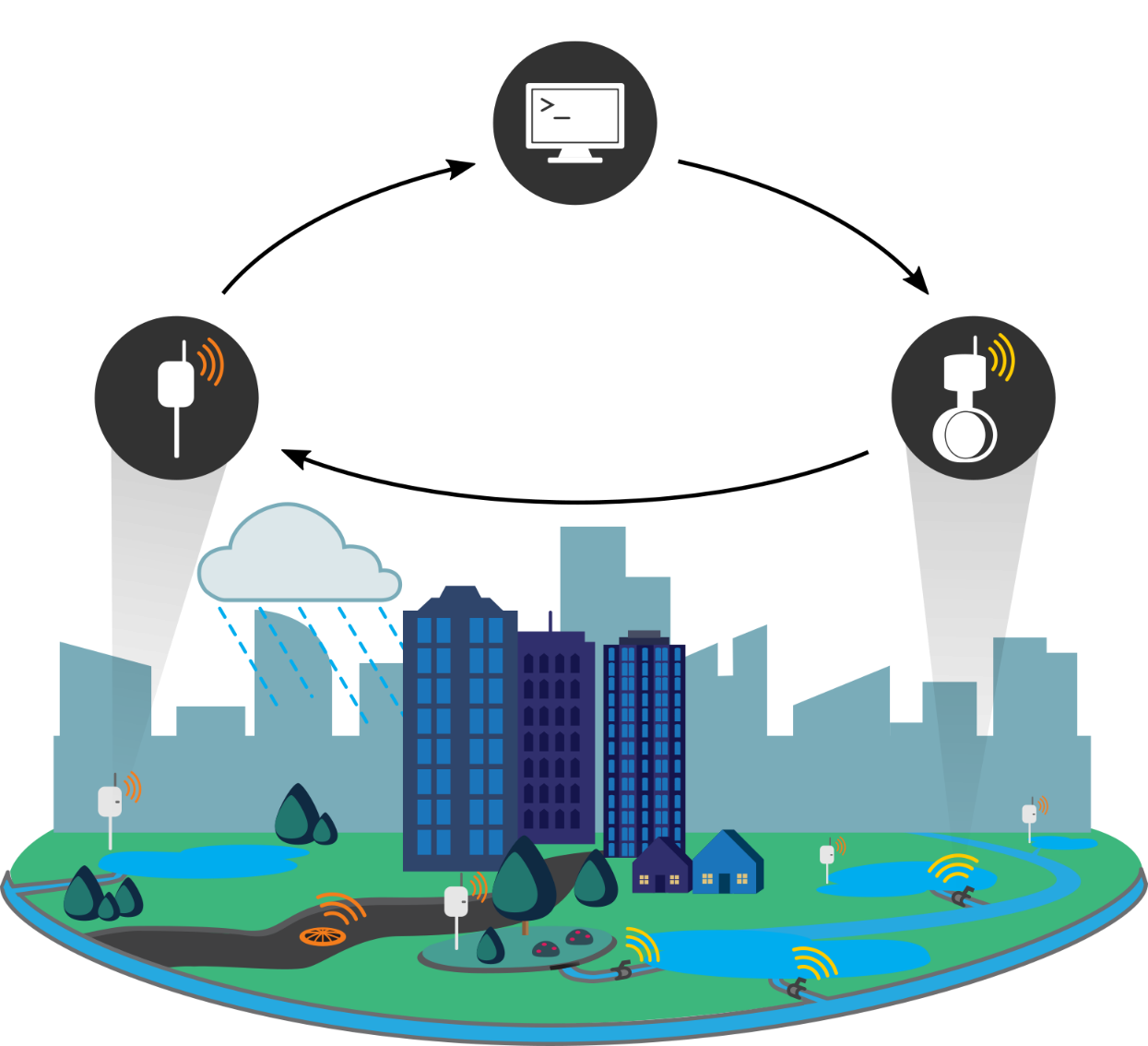 |
pystorms: A simulation sandbox for the development and evaluation of stormwater control algorithms
Collaborators: Sara P. Rimer, Abhiram Mullapudi, Branko Kerkez, et al.
• Environmental Modelling and Software, 2023
This open-source Python package includes a library of anonymized stormwater networks and corresponding delineated assessment scenarios for evaluating the performance of real-time control algorithms. Included with this library is a streamlined programming interface for users of the package, as well as a web portal with forums and tutorials to promote broader adoption in both the stormwater and control communities.
  
|
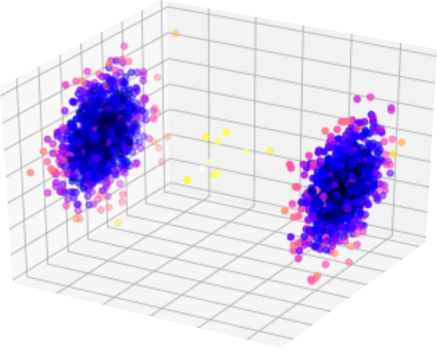 |
rrcf: Implementation of the Robust Random Cut Forest algorithm for anomaly detection on streams
Collaborators: Matt Bartos, Abhiram Mullapudi
• Journal of Open Source Software, 2019
The Robust Random Cut Forest (RRCF) algorithm is an ensemble method for detecting outliers in streaming data. This repository provides an open-source implementation of the RRCF algorithm and its core data structures for the purposes of facilitating experimentation and enabling future extensions of the RRCF algorithm.
 
|
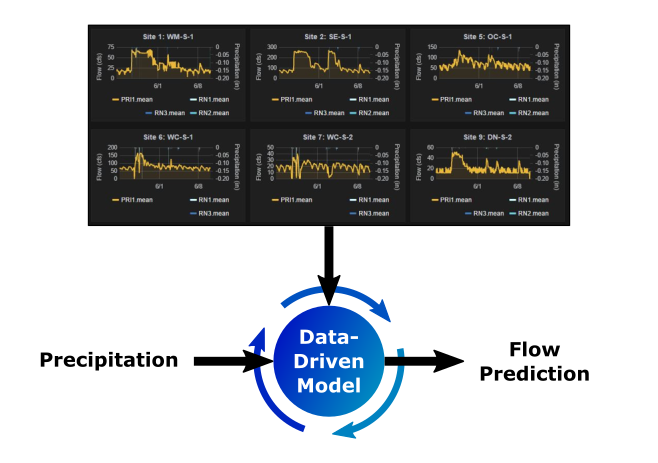 |
An automated toolchain for the data-driven and dynamical modeling of combined sewer systems
Collaborators: Branko Kerkez, Nathaniel Schambach, Nancy G. Love
• Water Research, 2017
Given the recent availability and affordability of sensors and wireless communication technologies, the potential to glean more information from water systems is growing, enabling a means to provide the best possible estimates of current and future conditions in these systems. To that end, we develop a novel sensor-driven identification/learning framework for combined sewer and stormwater systems. The framework uses Gaussian Processes to model dry-weather flows (domestic wastewater) and dynamical System Identification to represent wet-weather flows (rainfall runoff). By using a large and high-resolution sensor data set across a real-world combined sewer system, we illustrate that relatively simple models can achieve good forecasting performance, subject to a finely-tuned and continuous re-calibration procedure. The data requirements of the proposed framework show sensitivity to spatial and temporal heterogeneity that are unique across individuals sites.
 
|
Other Activities |
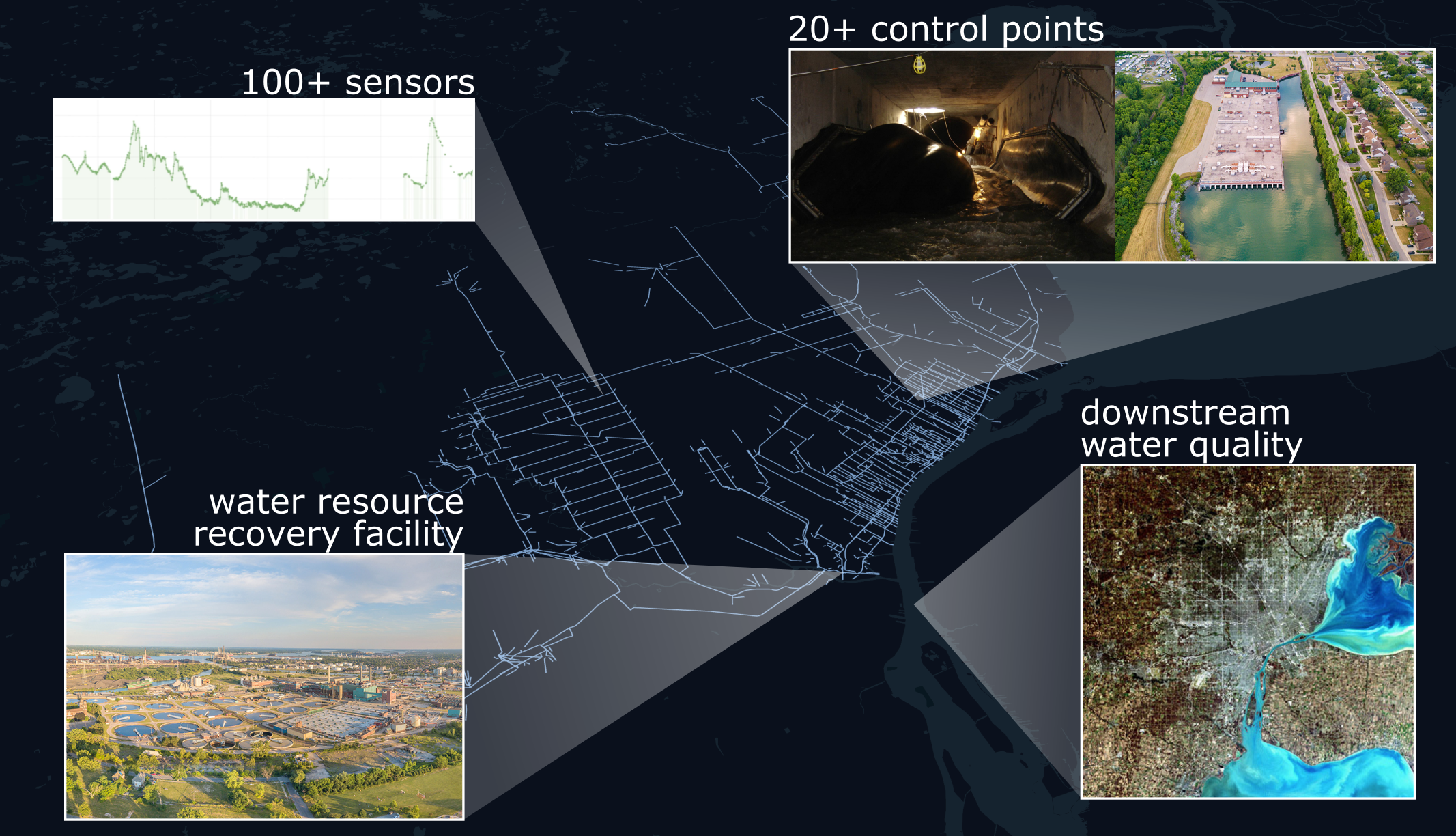 |
LIFT Intelligent Water Systems Challenge: Open-Storm Detroit Dynamics
Collaborators: Gregory Ewing, Abhiram Mullapudi, Branko Kerkez, Wendy Barrott
• Water Environment & Technology, 2019
• Grand Prize Winner in WRF & WEF LIFT Intelligent Water Systems Challenge, 2018
Real-time control of stormwater has the potential to improve system performance for a fraction of the cost of new construction. Through a utility-university partnership, the Great Lakes Water Authority (GLWA) and the University of Michigan are applying state-of-the-science technologies within a testbed of the Greater Detroit Regional Sewer System (GDRSS). Initial results from this effort are a real-time control algorithm simulation study that demonstrates the potential to reduce combined sewer overflows (CSOs) and a prototype implementation of a decision support dashboard powered by this real-time algorithm.
 
|





